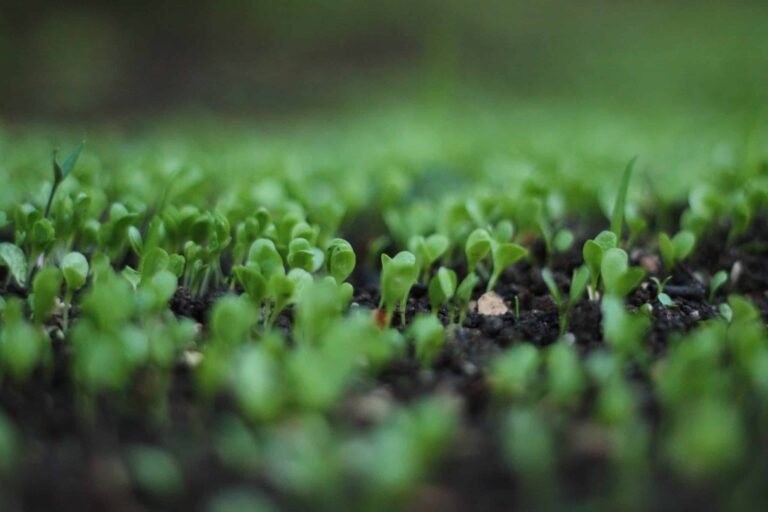Organic foods are in high demand. They are grown without synthetic pesticides, fertilizers, or GMOs. Organic farmers use natural methods to grow crops and conserve resources.
Many believe that organic foods are better for the environment and their health. But, organic foods are not without drawbacks. They can be more expensive and have a shorter shelf life.
In this article, we will explore the advantages and disadvantages of organic foods to help you make informed decisions about your food choices.
Table of Contents
Advantages of organic food
The following are the advantages of organic food:
Reduced use of pesticides and fertilizers
Organic farmers use natural methods to control pests and diseases. They also rely on crop rotation and other techniques to maintain soil fertility. This reduces the need for synthetic pesticides and fertilizers, which can harm beneficial insects, wildlife, and soil microorganisms.
Conservation of soil and water
Organic farming practices help to maintain soil health and prevent erosion. Organic farmers also use cover cropping and intercropping techniques to improve soil structure and reduce water runoff. This can help to conserve water resources and prevent pollution.
Lower carbon footprint
Organic farming practices use less energy and produce fewer greenhouse gas emissions than conventional farming methods. This is because organic farmers do not use synthetic fertilizers, which require significant amounts of energy to produce. Additionally, organic farmers rely on techniques such as crop rotation, which can help sequester soil carbon.
Higher nutrient content
Some studies have suggested that organic foods may have higher nutrient content than conventionally grown foods. Organic farmers focus on soil health and use natural methods to enhance plant nutrient uptake.
Lower levels of harmful chemicals
Organic foods are grown without synthetic pesticides, which can leave residues on crops and potentially harm human health. By avoiding these chemicals, organic foods may be safer for consumers.
Fewer instances of foodborne illness
Organic farmers use natural methods to control pests and diseases, which can reduce the risk of foodborne illness. Additionally, organic farmers follow strict guidelines for food safety and sanitation.
Promotes biodiversity
Organic farming encourages diverse crop rotations, which can help promote biodiversity and maintain healthy ecosystems. This can benefit local wildlife and pollinators, which can benefit local farmers by promoting crop pollination and pest control.
Encourages sustainable farming practices
Organic farming uses natural methods to control pests and diseases, conserve soil and water, and maintain ecosystem health. These practices can help to ensure the long-term sustainability of agriculture and support the livelihoods of local farmers.
Boosts local economy
Organic farming can benefit local communities economically by supporting local farmers and food systems. This can help to create jobs and stimulate local economic activity.
Read also: What is Permaculture and why is it an example of sustainability
Disadvantages of organic foods
The disadvantages of organic food are:
Limited availability
Organic foods are often produced in smaller quantities than conventionally grown foods. This can result in higher prices due to limited supply and increased production costs.
Production costs
Organic farming requires more labor and time-intensive methods than conventional farming. Organic farmers must also follow strict certification standards, which can result in higher production costs.
Increased labor costs
Organic farming methods often require more manual labor and attention to detail, such as hand weeding and crop rotation. This can result in higher labor costs for farmers.
Less use of preservatives
Organic foods are not treated with synthetic preservatives, which can extend their shelf-life. However, organic foods may spoil more quickly than conventionally grown foods.
Greater susceptibility to spoilage
They may be more susceptible to spoilage due to their lack of synthetic preservatives. This can result in a higher rate of food waste, which can be costly for both consumers and farmers.
Lack of conclusive evidence
While some studies have suggested that organic foods may be more nutritious than conventionally grown foods, the evidence is inconclusive. Many factors can affect nutrient content in food, including soil type, weather conditions, and farming practices.
Variability in nutrient content
Nutrient content in food can vary widely based on a variety of factors. For example, the nutrient content of an organic tomato may differ from that of a conventionally grown tomato, depending on the specific variety, growing conditions, and ripeness at harvest.
It may require larger portion sizes
Some studies have suggested that organic foods may be less energy-dense than conventionally grown foods, meaning consumers may need to eat larger portions to obtain the same amount of energy and nutrients.
Organic foods should be based on personal preferences
Organic foods have both advantages and disadvantages that consumers should consider. On the one hand, organic farming practices offer several environmental benefits, such as reduced use of pesticides and fertilizers, conservation of soil and water, and lower carbon footprint.
On the other hand, organic foods have some disadvantages, including their higher cost, limited availability, shorter shelf-life, and the fact that they are not always more nutritious than conventionally grown foods.
Ultimately, choices should be based on personal preferences and priorities. Consumers who prioritize environmental sustainability, food safety, and supporting local farmers may choose organic foods.
However, conventionally grown foods can still be nutritious and affordable for those on a tight budget or with limited access to organic options.
Read also: Sustainable development: missions and best practices to balance economy and ecology












